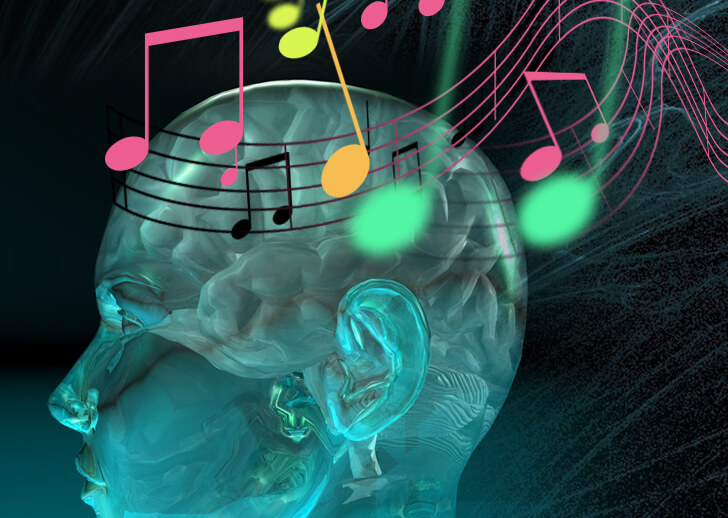 “Relapsing-remitting multiple sclerosis,” he said. “Let me get you some literature on the drug therapy options. I’ll be right back.”
“Relapsing-remitting multiple sclerosis,” he said. “Let me get you some literature on the drug therapy options. I’ll be right back.”
He left the room and I looked at Jeremy. “Did I just get diagnosed with MS?”
He nodded.
After my first MRI the neurologist had said that I was at a “high-risk” for developing MS. “Patients with an episode of optic neuritis and an abnormal MRI have an 80% chance of eventually developing MS,” he told us. The MRI was “abnormal” because it showed lesions on my brain. We will monitor it, he had said, with regular MRIs. Oh goody.
I saw the MRI images. I saw the white spots indicating lesions. But where did they exist on my physical body? I couldn’t tell. I couldn’t point to my head and show anyone where a lesion lived, potentially growing. And that’s what we had to monitor — the growth. If a lesion grows, it means the MS is progressing.
The neurologist came back into the exam room and handed me two notebooks, both published by pharmaceutical companies.
“Take these home and read over them,” he said. “You can let me know which one you’d like to start in a week or so.”
It was a choice between a weekly injection or a daily injection. Of immune-suppressing drugs that included possible side effects like heart failure, depression, suicide.
Pharmaceutical companies consider suicide a side effect.
“I don’t want to be on drugs for the rest of my life,” I said to Jeremy. We stood in the Kaiser parking lot next to our car, hugging and crying.
At home I read the notebooks. “This one says that some patients have been diagnosed with cancer during therapy,” I said. “It just doesn’t make sense, why would I take a drug that could make me susceptible to something worse than MS? And I already struggle with depression. I use CBD for depression, so why would I risk making it worse?”
Questions. So many questions. Will the disease progress? Is there a way to prevent its progression without taking drugs? Why would I take drugs without any guarantee that they would work? What would I do if I didn’t take the drugs?
“Babe, you’re not taking drugs,” Jeremy said.
•••
I’ve never been a fan of drugs. The thought of pumping my body full of chemicals doesn’t sit right with me. When I slumped into a bad depression last year, I did everything in my power to stay away from antidepressants. Artificially altering my body’s natural makeup always seemed counterintuitive.
Even more perplexing: for MS, my doctor prescribed a treatment that would artificially alter my body’s natural functions and inhibit my immune system. The medical theory is that patients with MS have an overactive immune system. To keep the immune system from overacting and attacking itself, doctors prescribe drugs to suppress it. More questions. But what is causing my immune system to attack itself? And do the drugs keep the disease from progressing or do they simply delay the inevitable? According to this New York Times article, a recent study shows that interferon beta, the most widely prescribed drug for treating MS, does not prevent the onset of disability. The researchers “found that those who took interferon beta were no less likely to suffer long-term disability than those who took none.”
Before the MS diagnosis I had read a book called The UltraMind Solution in hope of gaining new understanding about my struggle with depression, something I’ve been managing without drugs by conditioning my mind with music. The conditioning experiment got me wondering: If I can condition myself to the point where a song can change my mood, can I be conditioned by other things, like food? Could I be artificially altering my body’s natural makeup unintentionally? In The Ultra Mind Solution, author Dr. Mark Hyman writes about how diet and lifestyle affect not only our physical health but also our mental health, and the two are inexorably linked. He calls his brand of medical practice Functional Medicine.
What I read about the way our bodies react to food and nutrients made sense. The body responds to what we give it. We either nourish the body with what it needs to thrive, flourish and heal itself when it gets sick, or we attack the body with junk that exhausts and depletes its systems. And all the systems have to work together to maintain a healthy body. If the digestive system isn’t working right, it lets things get to the rest of the body that can be harmful to other systems, including the central nervous system and, ultimately, the brain.
Dr. Hyman also recommends a book called The Autoimmune Epidemic by Donna Jackson Nakazawa, which looks more specifically at diseases where the body’s systems attack itself. Multiple Sclerosis is an autoimmune disease in which the body’s own cells attack the protective myelin sheath surrounding the nerves in the brain and spinal cord. According to Nakazawa, autoimmune diseases are a fairly new phenomena. A short 50 years ago, the medical world believed that it was impossible for the human body to attack itself.
So what causes an autoimmune disease? The short version is that when there is something wrong like a virus or an infection, the body is trying to attack the invader but is so overloaded with toxins that the wires get crossed; it cannot distinguish between good cells (itself) and bad cells (toxins). Where do toxins come from? Everywhere. Nutrient-deficient food. Household cleaning products laden with chemicals. Fire-resistant foam in furniture. Paint fumes. Drugs. There is no way to even write a comprehensive list of all the ways we encounter toxins. The most interesting thing to think about, however, is how nutrient-deficient food–anything fast, processed, packaged, and preserved–is also a phenomena of roughly the last 50 years.
•••
“Then we need to find a doctor who practices Functional Medicine,” I said.
“Yes,” Jeremy said.
I started researching the very next day, spending hours online. Googling. Reading. Crying. Note-taking. Bookmarking. Crying. Writing. List-making. And repeating that cycle. It gave me something to do, a way to focus my anxious energy and my questioning mind. Would we find a doctor? What would my neurologist say? How do I manage being treated by both western medicine and alternative medicine? Is this the right decision? Will it work?
Searching for answers I discovered this book, Healing Multiple Sclerosis by Dr. Ann Boroch, and this TedX Talk by Dr. Terry Whals on YouTube:
[tube]http://www.youtube.com/watch?v=KLjgBLwH3Wc[/tube]
My research became a domino effect in our life: one book leading to the next leading to the next. How could we ignore it? It all confirmed our instinct about drug therapy for MS: there are alternative treatments. And we were going to pursue them.
Read more about what I’m learning along the way. Sign up for my email list & get a free copy of my ebook, Bold is Beautiful.

Janna, you are amazing. I was just driving past your old condo in Cameron Park this morning and was thinking about you, wondering how you’re dealing with things. And now this– this fight you are fighting– that’s inspiring. It makes me want to investigate more about health options– you’re taking the plunge to a healthy life without blankly accepting the current Western treatments. You don’t just nod and smile and say okay doc, do what you’re gonna do. You are a pioneer woman. You are brave. You might just change the world.
Thank you, Julie. It’s definitely a scary journey. So if plowing ahead in spite of fear makes me a pioneer woman, I will take it. Thank you.
Hello Janna,
I read your story and I understand the difficult environment your in. One that is bigger than one can imagine, but shared with such a few around you. In 2010 my neurologist diagnosed me with definitive PPMS (Primary Progressive Multiple Sclerosis), after 7 years of probable PPMS. The diagnosis of definitive PPMS was not difficult as my working abilities were reduced to a sub-zero level. I was forced to quit my working career and became a full-time disabled professional. Although it might sound bizarre, that was the best career move ever! From that moment I could focus all my attention on my wonderful wife, kids and my personal “recovery” of the quality of life. Yes, the love for life and my family was and still is larger than the breakdown of my body and its functions.
But the last 6 months I noticed that something else was active in my body. Something showed its face, other than the “normal” State of MS affairs and for my feeling a lot more progressive and aggressive. After specialized blood tests via a private clinic in South Africa my suspicion became the truth. I have Lyme disease, Post Lyme syndrome, with co-infections such as the Ricketsia Conorii and Mycoplasma.
Why do I tell you this? Because I tell all my MS buddies to stop swallowing what the doctors order and just take some time to have their blood tested on Lyme. Believe me, many are out there with a diagnosis of Lyme who are wrongly diagnosed.
Please do me a favor and research Lyme for me. http://www.lymeneteurope.org/info/the-complexities-of-lyme-disease
Hope you will manage, with or without.
Warm regards,
Jan van Ommen
proudly Disabled
Hi Jan, thanks so much for the comment and the info. With my decision to pursue a natural course of treatment, we are definitely exploring all other possibilities for what is happening with my body. Blood work is non-stop. So I will read up on Lyme disease, and thanks for the link.
I stumbled upon your blog today as I’m currently at my wits end on if what I’m doing is the right thing. Our stories are very similar. I bought the Ultra Mind Solution before diagnosis to get a better understanding of my emotions, bad eating habits and how to control my own health. Fast Forward to August 2014 and I was formally diagnosed with MS. I too was handed the pamphlets on what DM I should potentially take and I left thinking I can’t possible take any of these. But today, this week, the last year or so, I question, how do I know if this is even working?! Am I being foolish for not getting ahead of this disease by using a nutritional, natural path way about my treatment? I just feel overwhelmed and unsure if I’m in fact doing the right thing. One of the comments above mentioned you lived in Cameron Park. Are you from Cameron Park, CA? I was raised near there if thats the case. Anyway, any insight on what and how you are doing would be great. I will gladly share my secrets. I feel like its so difficult to get clear, concise, easy to follow and replicable assistance when you go against mainstream Western medicine. Its like a labyrinth to find information. Thanks for your blog!
Hi Amber, thank you for the comment and I’m sorry to hear about your struggles. I know how frustrating and isolating it can feel when you don’t know what to do and you feel like no one else is going through what you are. I would highly recommend the book Healing Multiple Sclerosis by Ann Boroch. It changed my life and my perspective on what it means to be healthy. (BTW, I’m not from Cameron Park, but I did live there for a little while. My parents still live there. I live in Sacramento.)